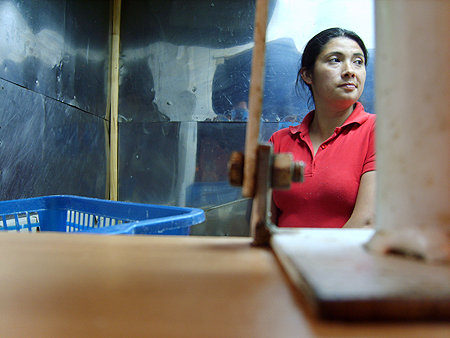I have always been struck by how ordinary European citizens avoid considering that the things they consume daily are produced by underpaid or exploited workers in poor countries.
I don’t know. Maybe these citizens suffer from a kind of “selective blindness” that deprives them of the necessary understanding to connect what the products’ labels openly say in front of their eyes and the other, the less visible reality of those working day and night under exploitative conditions to produce these products.
Does it cross their minds that someone had to water those tomatoes, take care of those lettuces, and collect and carry heavy sacks with those cabbages and potatoes? The distance between who consumes and who works to produce grows more extensive and opaque over time. Companies do the impossible to separate them, and marketing does magic tricks to sell more quickly and keep the machinery running.
But let’s leave the abstract and go to the concrete reality. What would you do if you knew that the glamorous Italian tomato sauce you buy in the supermarket sale was produced by undocumented workers in southern Italy or Spain, kept in poor conditions thanks to the complicity of local capos, the police and the local government? What would you do if you knew these workers sleep outdoors in tents without showers or toilets, mostly coming from poor countries like Senegal or Gambia?
Have you heard of the “sea of plastic” in Almería in Spain? Do you know why they call it a sea of plastic? Do you know that what is produced in those gigantic greenhouses goes to Europe to be sold in supermarkets like TESCO, ALDI or LIDL?
No, probably not. And even if you knew or chose to know, none of this would keep you awake at night, nor would it stop you from taking advantage of the reasonable prices and nice products.
Meanwhile, some of us are amazed by the tireless attempts to deny this reality that surrounds European citizens. But unfortunately, this selective blindness has led them to manufacture this toxic cloud of banality that contaminates common sense and empathy. Then, the “sweat and tears” behind the product and services they consume remain unquestioned. The reality surrounding us is becoming increasingly like a television show, constraining people’s slightest understanding of the gap between their lifestyle and the suffering of the workers sustaining it with their poorly paid work and sufferings.
How long will it be possible to live in this unjust regime? When all this blows up… Will we start again?
Photo: Sebastian Silva: https://a-visual-diary-for-tomorrow.tumblr.com/

Leave a comment